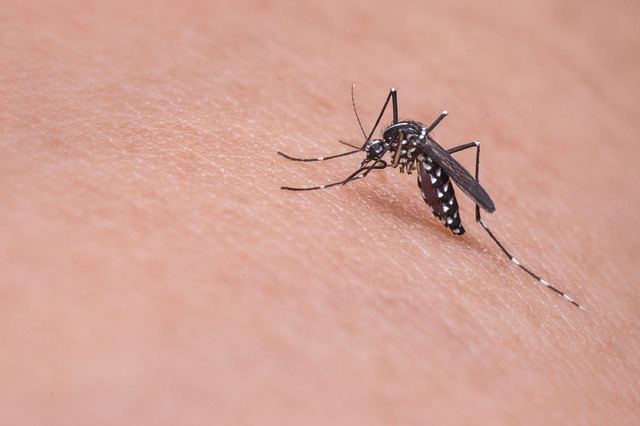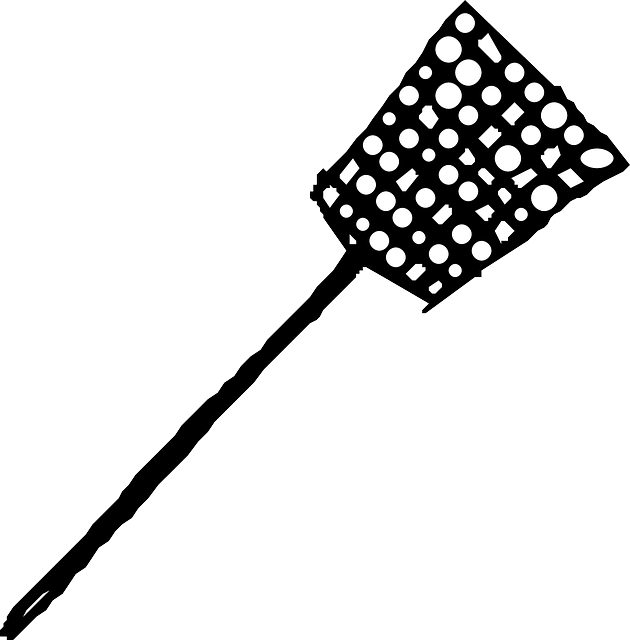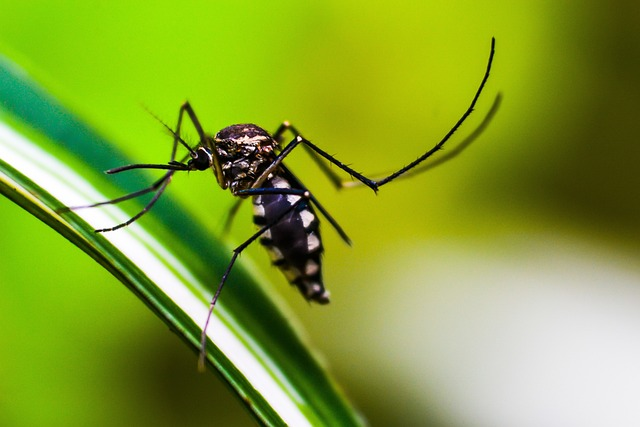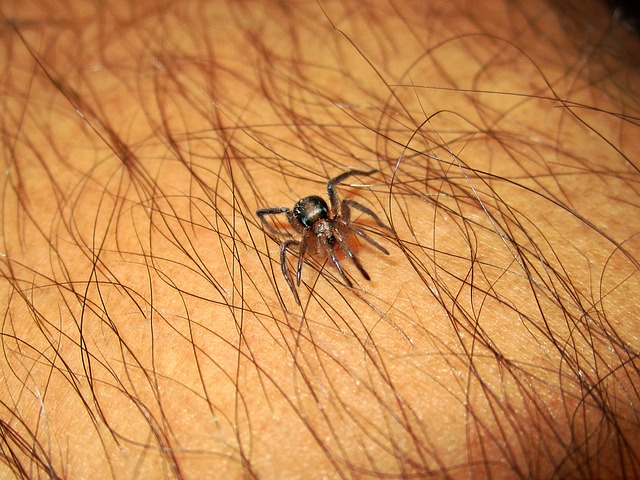Ever woken up with an itchy red bump on your skin and wondered whether it’s a bite from bed bug vs mosquito? Knowing the difference between these two bothersome insect bites is crucial, as it can help you take the right steps to address the issue in your living environment. In this blog post, we’ll guide you through the process of identifying the culprit, prevention strategies, health risks, treatment options, and other insect bites to consider. So, let’s dive in and uncover the secrets of differentiating between bite from bed bug vs mosquito bites.
Key Takeaways
- Bed bug bites typically appear in clusters or lines on areas of the body covered by clothing as flat, red welts, while mosquito bites present as isolated raised bumps with a raised white welt and red boundaries.
- Prevention strategies such as regular vacuuming and washing bedding and clothing can help protect against bed bugs and mosquitoes.
- Home remedies such as cold compresses, over-the-counter anti itch creams, witch hazel solution etc., can be used to treat bed bug & mosquito bites. Medical attention should be sought if experiencing severe allergic reactions or infections.
Identifying the Culprit: Bed Bug Bites vs Mosquito Bites
Distinguishing between bed bug bites and mosquito bites allows for appropriate measures to eliminate the respective insects from your home.
The distinct characteristics of these bites – their appearance, timing, and skin reactions – will be examined.
Appearance of Bites
Bed bug bites often appear in clusters or lines, typically presenting as flat, red welts that may not initially cause itching but can become itchy over time. A single bed bug bite is less common, but still possible. These bites are generally found on areas of the body covered by clothing, such as the torso, arms, and legs. Recognizing bed bug bite symptoms is essential for early detection and treatment, and observing bite marks can help confirm the presence of bed bugs. Identifying these bite sites is crucial in addressing the infestation effectively.
On the other hand, mosquito bites present as isolated raised bumps on exposed skin, appearing as a raised white welt with oddly shaped, red boundaries. The reaction time mosquito bites is usually faster, with itching occurring almost immediately. In contrast, bed bug bites may take longer to cause itching, and their unique bite pattern, which may be multiple and arranged in a linear or circular fashion, can help in distinguishing them from mosquito bites.
Bite Timing and Occurrence
Bed bug bites typically happen at night during sleep, often on areas covered by clothing like the torso, arms, and legs. Because these bites may take several days to appear, their early identification is key to detecting and curbing a potential bed bug infestation. It is important to know when bed bug bites occur to effectively address the issue.
In contrast, mosquito bites tend to have the following characteristics:
- More likely to occur during the evening
- Can be detected almost instantly
- More frequent during dusk hours
- Cause itching almost immediately after the bite has taken place
Recognizing the differences in timing and occurrence of bed bug and mosquito bites aids in identifying the responsible insect.
Skin Reactions and Symptoms
Bed bug bites can result in a variety of skin reactions, ranging from mild irritation to more severe allergic reactions. These bites typically do not cause itching initially but may become itchy over time. Conversely, mosquito bites usually lead to immediate red welts and itching. The quick reaction time and visible symptoms of mosquito bites can help in distinguishing them from bed bug bites.
Accurate identification of insect bites is significant as bed bug bites can cause skin irritation, allergic reactions, and infections, while mosquito bites, capable of transmitting diseases, pose severe health risks.
Subsequent sections will delve into prevention strategies and treatment options for bed bug and mosquito bites.
Prevention Strategies for Bed Bugs and Mosquitoes
Protecting yourself and your home from bed bugs and mosquitoes requires implementing effective prevention strategies. This section will explore diverse methods to keep bed bugs and mosquitoes away, thus ensuring a pest-free living environment.
Bed bugs tend to be prevented by regularly vacuuming and washing bedding and clothing in hot.
Keeping Bed Bugs at Bay
One of the best ways to prevent bed bug infestations is by:
- Inspecting secondhand furniture, luggage, and hotel rooms for any signs of bed bugs
- Being on the lookout for diminutive, dark spots on mattresses, bedding, and furniture
- Examining the crevices of mattresses and furniture for small, reddish-brown bugs to detect a bed bug infestation.
In addition to inspecting items, using a bed bug proof cover on mattresses and pillows can help prevent bed bug infestations. Adopting these precautions reduces the risk of bed bug infestations and shields you from their bites.
Warding Off Mosquitoes
Eliminating any standing water around your home, like that in flower pots, buckets, or other containers, is key to preventing mosquito bites as it prevents breeding grounds for mosquitoes. Additionally, repairing window screens for any holes or tears can help keep mosquitoes out of your home.
Using a DEET-based repellent is another effective way to prevent mosquito bites. Implementing these preventive measures minimizes your exposure to mosquito bites and the attendant potential health risks.
Health Risks and Disease Transmission
While bed bug bites and mosquito bites can cause discomfort, it is crucial to understand the potential health risks and disease transmission associated with each type of bite.
This section will tackle the various health risks linked to bed bug and mosquito bites and how to manage them.
Diseases Spread by Mosquitoes
Mosquitoes can transmit a variety of diseases, including:
- Zika
- Malaria
- Dengue fever
- Chikungunya
- Yellow fever
- West Nile virus
These diseases pose serious health risks, and some can even become life-threatening if not treated promptly. Preventive measures against mosquito bites, like using repellents and eliminating standing water, are important to reduce the risk of contracting these diseases.
Unlike mosquitoes, bed bugs do not transmit diseases through their bites. However, their bites can still cause skin rashes, allergic reactions, and potentially lead to secondary infections if scratched.
In the following subsection, we will discuss infections and allergic reactions from bed bug bites.
Infections and Allergic Reactions from Bed Bug Bites
Bed bug bites can cause skin rashes and allergic reactions, which can manifest as redness, swelling, and itching. While bed bug bites themselves do not typically cause infections, excessive scratching of the bites can lead to open wounds, which may then become infected. To prevent infection, it’s important to avoid scratching the bites and to maintain the affected area clean and dry.
If you experience severe allergic reactions or infections from bed bug bites, it is necessary to seek medical attention.
The next section will discuss treatment options for bed bug and mosquito bites.
Treating Bed Bug Bites and Mosquito Bites
Whether you are dealing with bed bug bites or mosquito bites, it is crucial to know how to treat them effectively.
This section will delve into various home remedies for bite relief and when to seek medical attention for severe cases.
Home Remedies for Bite Relief
For mild bite reactions from bed bugs and mosquitoes, several home remedies can help alleviate discomfort. Here are some options:
- Applying a cold compress
- Utilizing over-the-counter anti-itch creams or corticosteroid creams
- Preparing a solution of witch hazel and water
- Using tea tree oil
- Applying calamine lotion
These remedies can provide relief from itching and discomfort.
Keeping the affected area clean and dry, especially if the bites are scratched, is critical to prevent infection. These home remedies can aid in managing the itching and discomfort associated with bed bug and mosquito bites.
When to Seek Medical Attention
While home remedies can be effective for mild mosquito bite symptoms, there are instances where medical attention is necessary. Medical help should be sought if you experience a severe allergic reaction, infection, or if the mosquito bite is carrying a dangerous pathogen like West Nile virus, Zika virus, or malaria.
Indications of a severe allergic reaction include hives, difficulty breathing, and swelling of the face, lips, tongue, or throat. If you notice signs of infection, such as redness, swelling, warmth, and pus, it is crucial to consult a healthcare professional.
Seeking medical attention promptly ensures the best possible health outcome.
Other Insect Bites to Consider
In addition to bed bug bites and mosquito bites, there are other insect bites that can cause similar symptoms, such as:
- spider bites
- tick bites
- ice bites
- fire ant bites
- flea bites
- mite bites
- kissing bug bites
Awareness of these other biting insects and consulting a pest management expert for help in identifying and addressing the issue is crucial.
Understanding the differences between bed bug bites, mosquito bites, and other insect bites enables you to take appropriate measures to protect yourself, your family, and your home from these pests.
Summary
In conclusion, knowing the differences between bed bug bites and mosquito bites is crucial in addressing the issue effectively. By understanding their distinct characteristics in terms of appearance, timing, and skin reactions, and implementing prevention strategies, you can protect your living environment from these pests.
Remember to seek medical attention if you experience severe allergic reactions, infections, or dangerous pathogen infections from mosquito bites. With the knowledge gained from this blog post, you can now confidently identify, prevent, and treat bed bug bites and mosquito bites for a healthier and pest-free life.
Frequently Asked Questions
How do I know if I got bit by a mosquito or a bed bug?
By looking at the size and coloring of the bites, you can tell whether it is from a bed bug or mosquito. Mosquito bites are usually red with white centers, while bed bug bites are often red and swollen with a pimple-like appearance. Additionally, the time of appearance of the bites is also a sign – mosquito bites can occur almost immediately after exposure.
What is biting me at night not bed bugs?
It’s likely that mosquitoes, fleas, gnats, or midges are biting you at night, not bed bugs.
Why do mosquito bites itch more in bed?
Mosquito bites are known to itch more at night due to increased blood flow to the skin, while cortisol levels are lower and distractions are fewer, allowing the inflammatory response which causes itching to take over.
What is the main difference between bed bug bites and mosquito bites in terms of appearance?
Bed bug bites tend to appear in clusters or lines on the body, while mosquito bites usually appear as single raised bumps.
What diseases can mosquitoes transmit?
Mosquitoes are known to transmit a variety of serious diseases, such as Zika, malaria, dengue fever, chikungunya, yellow fever, and West Nile virus.





